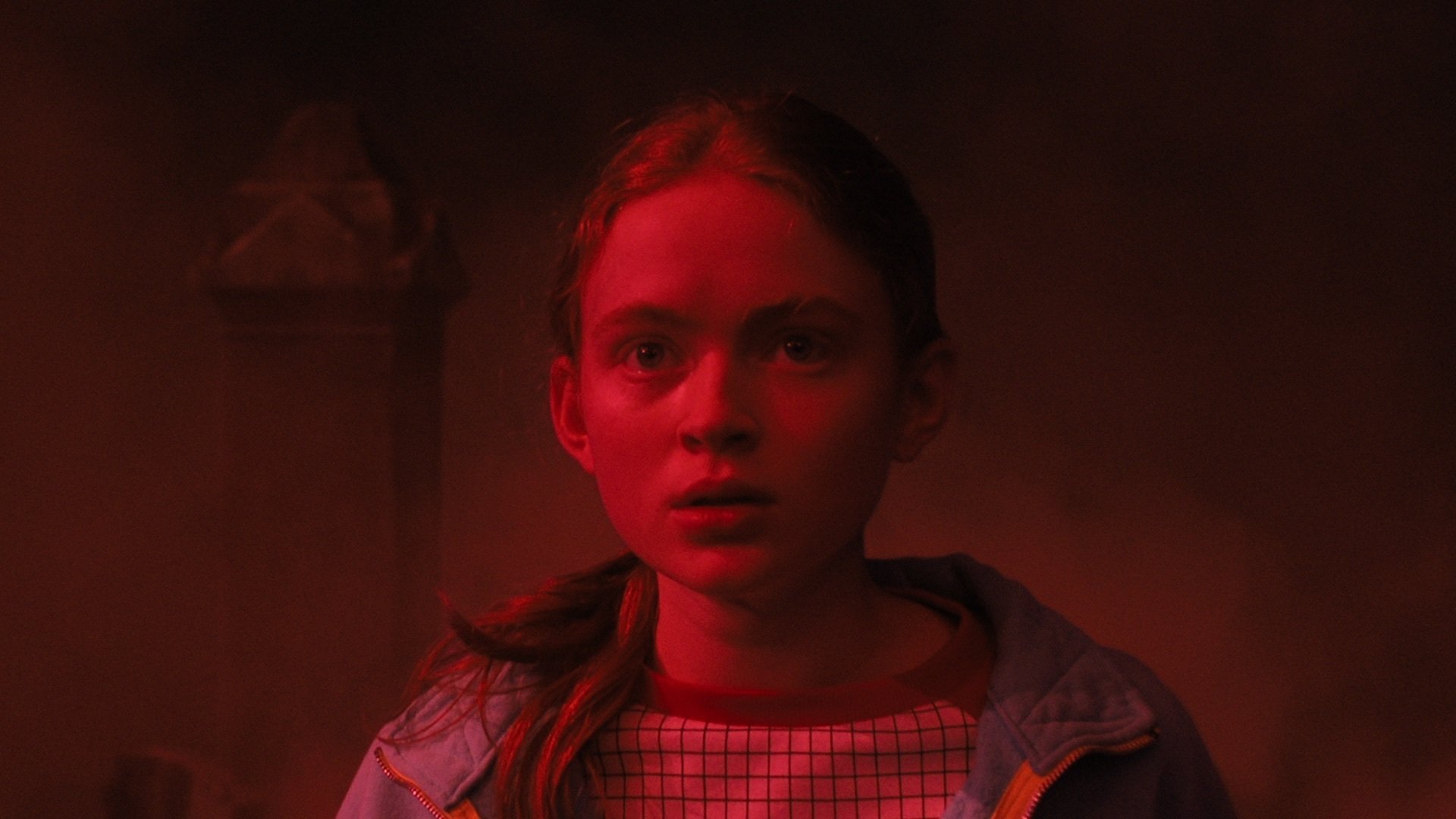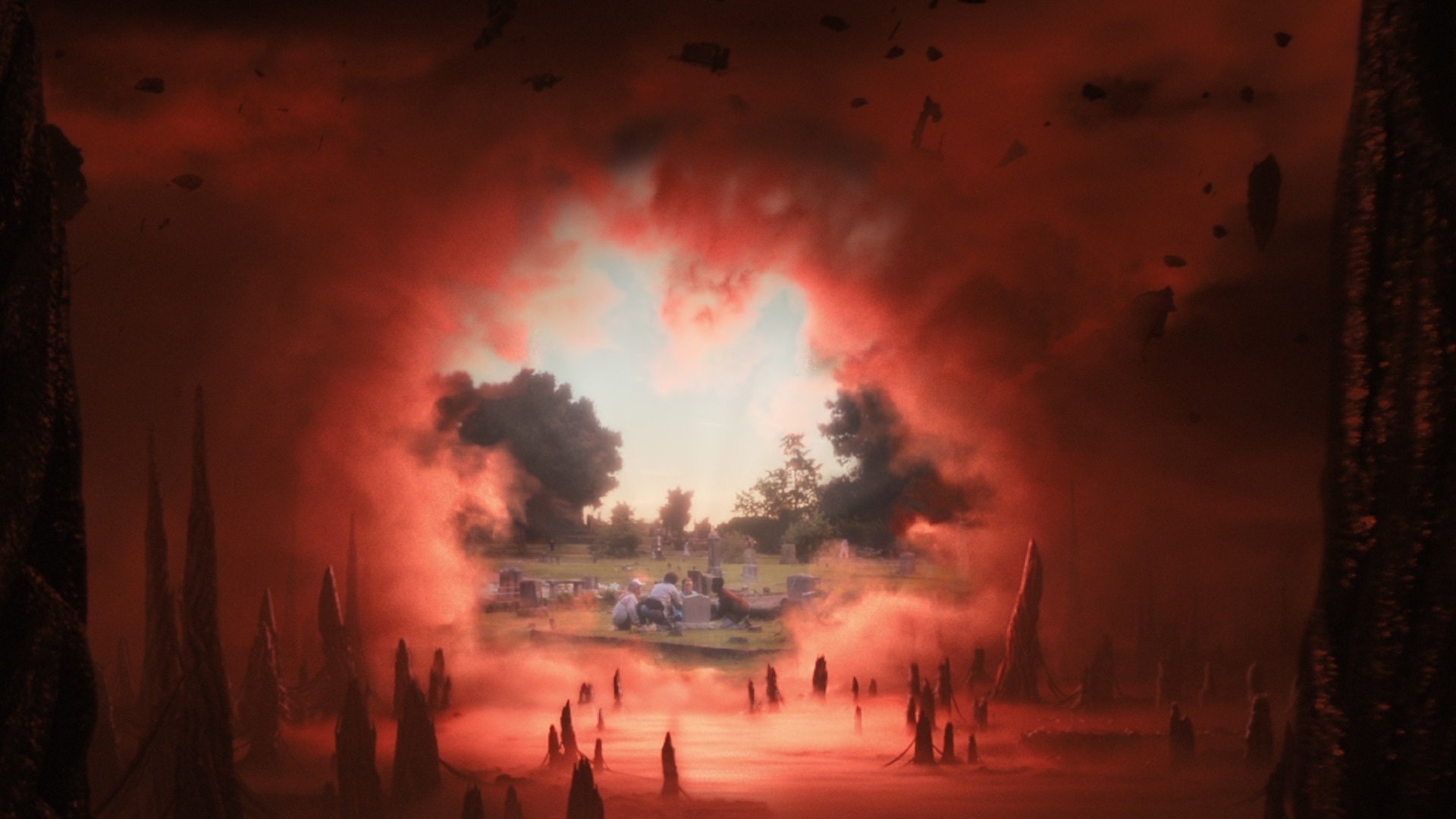
Stranger Things Season 4 is brimming with gut-punch moments: the humiliation of Eleven by a relentless bully, terrifying encounters with the villain Vecna, and the final reveal of that character’s origin story.
But arguably the most emotionally powerful scene of the season’s first volume arrives in episode 4, when Max (Sadie Sink) is held psychologically captive by Vecna, a serial killer from the Upside Down who entrances and tortures his victims with their worst fears and experiences before murdering them. The showdown between Vecna and Max unfolds to the soundtrack of Kate Bush’s ’80s hit “Running Up That Hill,” a percussion and synth-driven ballad about making a deal with God that happens to be Max’s favorite song.
Max’s past experience with trauma — namely, watching the Mind Flayer brutally kill her stepbrother Billy (Dacre Montgomery) in Season 3 — makes her a target for Vecna’s manipulation. She’s become withdrawn and adrift, pulling away from her friends and sinking deeper into what looks like depression. While sitting at Billy’s grave, she weeps over the loss, trembling as she says aloud how and why he died, and confessing she can’t share those details with anyone else.
When Vecna appears at the gravesite, it’s first as Billy, mutilated, bloody, and eager to deepen the emotional wound that is Max’s survivor’s guilt. Vecna as Billy tells Max: “[L]ate at night, you have sometimes wished to follow me. Follow me into death. That is why I am here, Max, to end your suffering once and for all” — alluding perhaps to suicidal feelings Max hasn’t mentioned.
Max tries to outrun Vecna when he materializes as himself, but finds herself in the Upside Down. While caught in Vecna’s grip, a tear in the dark dimension reveals her friends on the other side, desperately trying to save her from Vecna’s curse. Of course, it’s “Running Up That Hill,” blasted into Max’s headphones that breaks Vecna’s hold on her.
As Vecna prepares to take her life, Max closes her eyes and sees joyful memories: laughing with El, dressing up as a Ghostbuster for Halloween, dancing with Lucas (and kissing him). She breaks free, momentarily incapacitates Vecna, and runs with the determination to live toward her friends, dodging debris that Vecna throws in her path. Max hurls herself through the portal, awakes from the trance, and is held by Lucas (Caleb McLaughlin). “I thought we lost you,” he cries. “I’m still here. I’m still here,” she says.
For some fans who’ve experienced depression and suicidal thoughts, or attempted suicide, the lengthy scene reads as more than just a classic psychological thriller. Instead, it feels like a metaphor about the difficulty of overcoming suicidal thoughts and feelings. That interpretation resonated with numerous commenters in a Stranger Things subreddit post about Max’s escape from Vecna, even though the words “suicide” and “depression” are never uttered in the show.
“This episode hit me hard too, because when I was at my most depressed, I found my favourite band, and that made me cling onto life,” one commenter wrote. Another said: “I cried watching this scene because it captured so well what it was like to go through a major depressive episode and convince myself to keep going.”
Netflix declined to comment on the scene, but those fans’ interpretation might not be far off. The show’s music supervisor, Nora Felder, told Variety: “In some ways, this scene can be understood as alluding more broadly to the inner struggles with private demons that many teens wrestle with during troubled times, especially when feeling alone and estranged from others.”

Credit: Courtesy of Netflix
Brett Wean, director of writing and entertainment outreach for the American Foundation for Suicide Prevention, felt similarly.
“While I’m not certain what the Duffer Brothers intended with this sequence in terms of it being an allegory for someone facing depression or suicidal thoughts, it certainly tells me something that people are assigning meaning to it in this way,” he wrote in an email. “I think viewers’ interpretation…speaks to where people are at right now, particularly young people, as many of them face adversity and isolation as a result of the pandemic.”
Protective factors against suicide include connections to friends, family, and community support. Isolation and adverse childhood experiences, including verbal and physical abuse of the kind that Vecna’s other victims appeared to endure, are among the risk factors.
Vic Welle, a mental health peer support trainer who has planned but not carried out suicide attempts, told Mashable that they found the scene powerful.
“The depiction of what it’s like to be at that point of despair is really captured well,” Welle said. “The Upside Down as this place of distortion and a place of almost hopelessness where Vecna is saying the worst things, the worst fears you might have about yourself…and what if they’re true? That’s what it’s like to be in that place of feeling completely worthless.”
“The depiction of what it’s like to be at that point of despair is really captured well.”
Yet what makes the scene so memorable is not just its portrayal of psychological and emotional crisis, but the swift, heartfelt efforts from Max’s friends to save her life. They don’t flinch at trying to rescue her. They know which song to play because they’ve been paying attention, and they don’t give up, even as Max is the one who ultimately makes the choice to survive.
“The really hopeful piece is the role of connection to community and reminders of meaning and purpose,” said Welle.
While the scene is no blueprint for how to help someone in a mental health crisis — the show is still just a sci-fi/horror series, after all — the spirit of Max’s friends’ intervention may be worth drawing on in real life.
For those experiencing suicidal thoughts and behavior who also feel like they lack emotional support, Welle said the scene can instead point to finding community elsewhere. In the absence of trusted, close friends and family, Welle recommends Alternatives to Suicide support groups like the Massachusetts-based Wildflower Alliance, which offers virtual meetings and has a directory of support groups people can explore. Welle has participated in peer support groups when they felt unable to talk to their loved ones.
And while the foreboding sense that vulnerable youth are doomed by Vecna works for the show’s narrative arc this season, Welle noted that experiencing trauma doesn’t always lead to depression or suicidal feelings and behavior.
“If you have something really huge happen to you and you are surrounded with compassion, resources, and the ability to process and make meaning of that and integrate that into your overall life story, I think that’s really different from having to carry that in isolation,” said Welle, who describes themselves as a trauma and psychiatric survivor.
In the end, Stranger Things didn’t need to spell any of this out. Between the profound writing, Sink’s masterful performance, and the impeccable song choice, it was all there, waiting for viewers who would understand.
If you want to talk to someone or are experiencing suicidal thoughts, Crisis Text Line provides free, confidential support 24/7. Text CRISIS to 741741 to be connected to a crisis counselor. Contact the NAMI HelpLine at 1-800-950-NAMI, Monday through Friday from 10:00 a.m. – 10:00 p.m. ET, or email info@nami.org. You can also call the National Suicide Prevention Lifeline at 1-800-273-8255. Here is a list of international resources.
